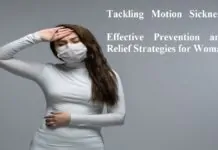So you had unprotected sex with a new partner. You enjoyed the experience — that is, until this moment. Now you think you might have a sexually transmitted infection (STI).
You worry and begin Googling symptoms. You kick yourself because you and your partner didn’t use a condom or dental dam. You begin to panic, wondering what you should do now.
First, you should know you aren’t alone. The Centers for Disease Control and Prevention estimates that 20% of people in the United States have a sexually transmitted infection. That’s more than 66 million people and growing.
If you think you have a sexually transmitted infection, there’s no need to be embarrassed. But there is a need to take action.
Here’s what you should do.
Table of Contents
1. Get Tested
If you even have the smallest suspicion you might have a sexually transmitted infection, stop wondering. Get tested. STIs are fairly common and are not something to be embarrassed about. If you don’t have time or just don’t want to get tested in person at your doctor’s office, don’t let that stop you. Thankfully, you have options.
Check out the possibility of at-home STI testing kits. Set aside a few minutes to answer an online questionnaire, then a home test kit will be delivered to your door. The test kit you receive may differ depending on your symptoms and the information you supplied. After you mail back the test, an online healthcare provider will discuss the results with you and can even prescribe treatment if you test positive.
Untreated sexually transmitted infections can cause serious health issues or even death. It’s far better to know what you have, if anything, and to deal with it appropriately. But even before you get the results back, there are some other steps you should take.
2. Suspend Sexual Contact Until You Know
Play it smart while you’re waiting for your test results. That time window can range depending on if you were tested at your local doctor’s office or via a mail-in test. Until you know for sure, it’s wise to avoid any type of sexual contact.
If there’s a chance you might have a sexually transmitted infection, don’t risk passing it to someone else. Waiting for a week or two might feel like torture, but passing an STI to a partner could actually harm them.
This applies if you are still seeing the person you think gave you a sexually transmitted infection, to begin with. You cannot be sure whom you contracted it from or even when. Not every STI has symptoms or is symptomatic all the time.
The sexually transmitted infection conversation with a new partner can be tough. But honesty is always the best policy and it’s a necessary and healthy conversation.
3. Commit to Full Disclosure and Protection
Full disclosure of even the possibility you have a sexually transmitted infection is vital. Who knows? When you tell your partner that you’ve been tested, he or she may admit to having an STI or symptoms. Never assume that a partner will voluntarily share STI history or symptoms. Being able to have open conversations with sex partners about STIs is incredibly important.
So it’s been a week or two. If your test results are positive, you will need treatment. Remember, many STIs are curable, and all are treatable. But you need to protect yourself going forward.
STIs can be transferred genitally, rectally, and orally. While complete abstinence is the only sure protection against them, condoms and dental dams provide some protection. Until you and your partner have been together exclusively for a long period and have both been tested, exercise extreme caution.
If you are sexually active with more than one person, you should also be tested for STIs often. You should talk to your provider about testing frequency based on your situation. You should be retested any time you think you have been exposed to someone with a sexually transmitted infection or experienced symptoms.
4. Take Extra Care If Pregnant or Nursing
No matter how awkward you might feel about a potential sexually transmitted infection, you need to talk to your obstetrician if you’re pregnant or nursing. If you suspect you might be pregnant, take a pregnancy test as well.
Genital herpes, chlamydia, gonorrhea, and hepatitis B can be transmitted to an infant during birth. Syphilis can enter the placenta and infect a fetus. So even the possibility of an STI is nothing to keep from your obstetrician.
HSV-1 (genital herpes) and HSV-2 (herpes around the mouth; usually referred to as “cold sores”) are equally serious. Nursing moms with breast lesions can infect infants if they come into contact with them. If you are nursing and have noticed lesions, talk with your OB-GYN. There are measures you can take to still feed your baby breast milk.
Keep in mind that your doctor has likely worked with many pregnant and breastfeeding moms with STIs. Even the suspicion that you might have an STI warrants an immediate conversation with yours. Not much is “secret” from your obstetrician, so don’t attempt to make this one.
Deal With the Issue Head-On
The worst thing for you, your intimate partners, or your child is ignoring your suspicions. If you suspect you might have an STI, take action. First, get tested. Then, be sure you’re abstinent while waiting for results, communicate with your partners, get treated and take precautions in the future.
Take charge of your health and your sex life. There’s a tremendous amount of power in confronting the unknown, especially when it comes to your health and safety.


















